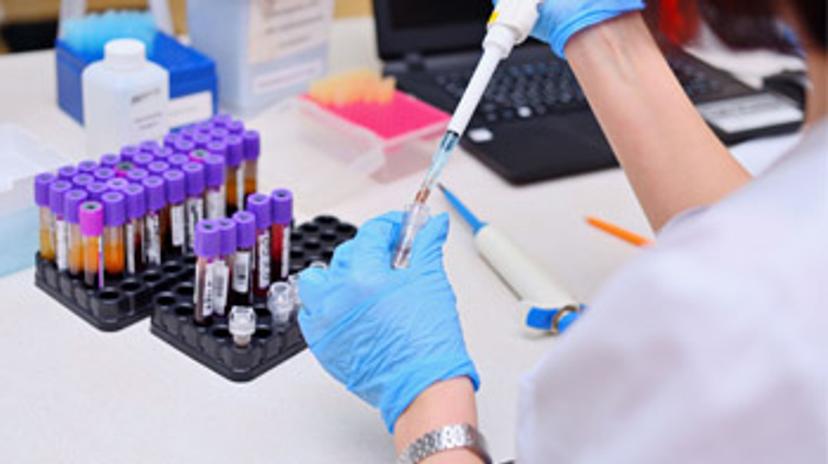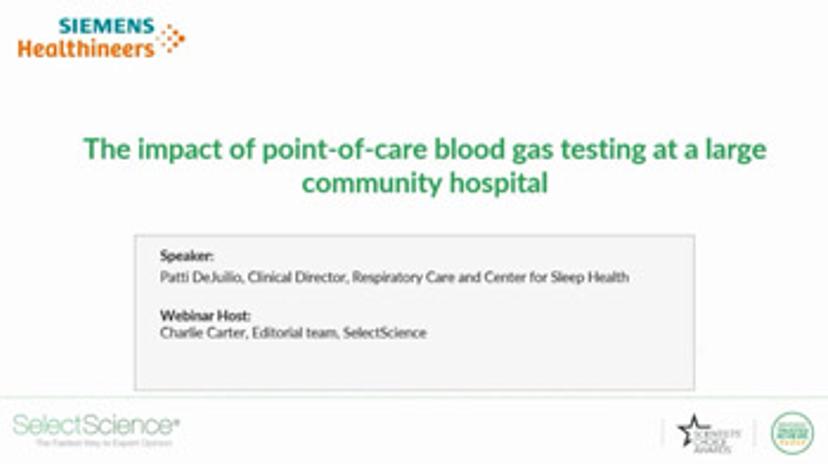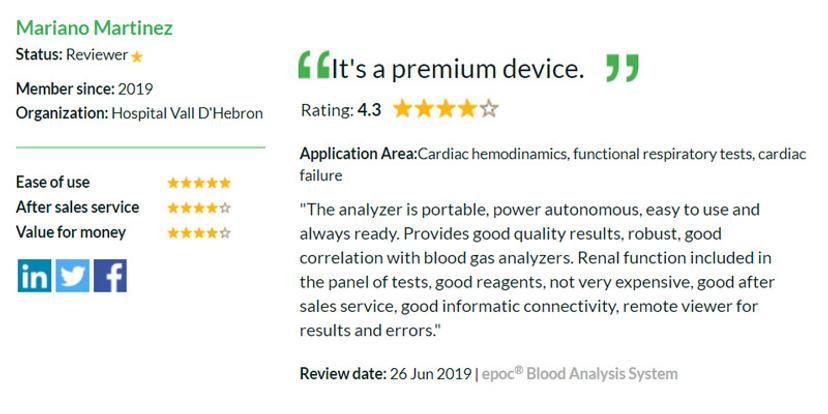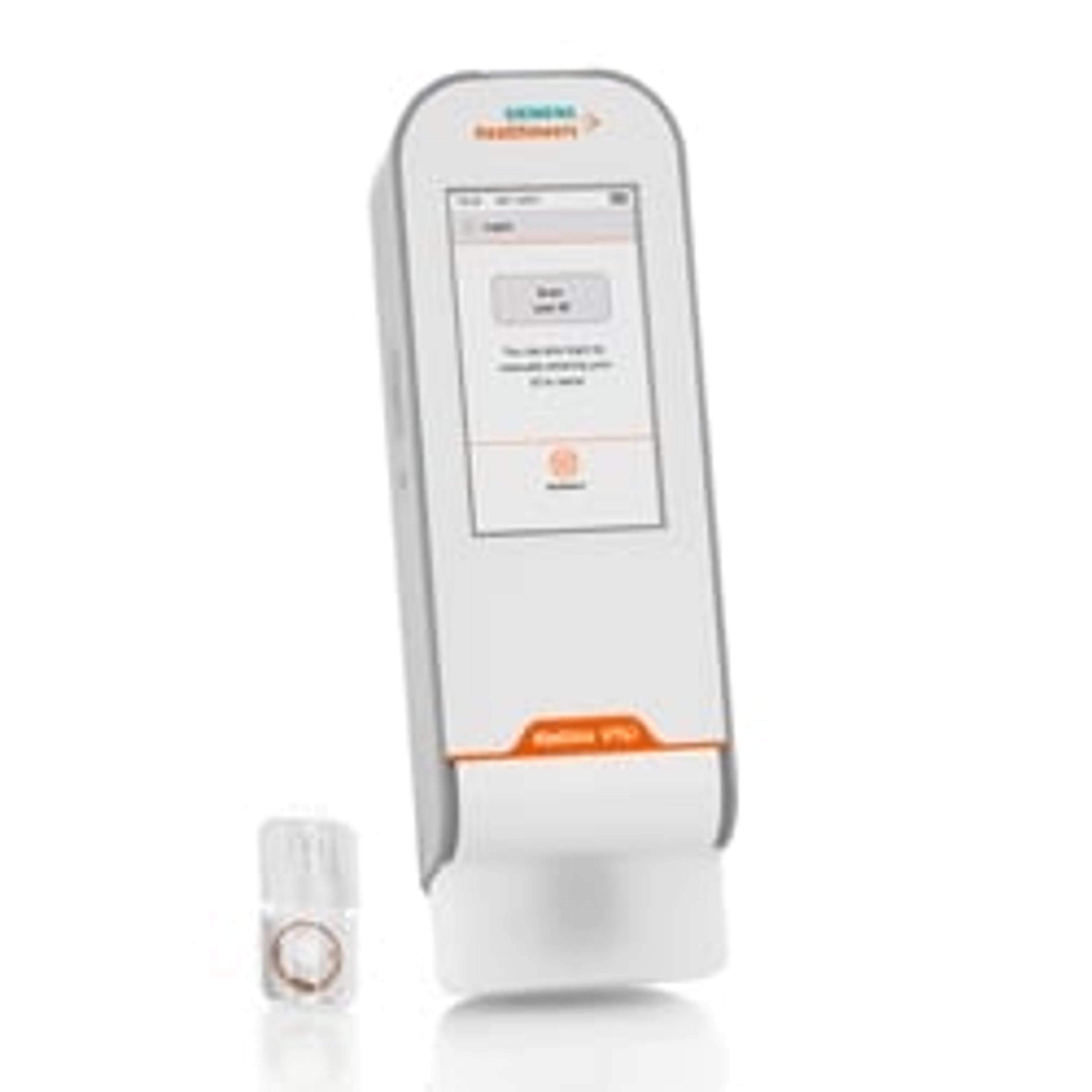How point of care testing is transforming healthcare: Clinicians share their thoughts
Leading clinicians discuss the latest developments in point of care testing for cardiac disease, myocardial infarction, and blood gas analysis
6 Dec 2021

Want to know more about point of care testing (POCT)? Look no further! We’ve pulled together all the must-have resources for you to stay in the know about the latest developments and techniques in point of care testing.
Read on to explore a collection of videos, articles, webinars, and more to supplement your knowledge of point of care testing. Topics of interest include cardiac troponin assays for acute coronary syndrome (ACS), natriuretic peptide testing for the diagnosis of heart failure, and point of care blood gas analysis.

The impact of a point of care high-sensitivity cardiac troponin assay in the emergency department
High-sensitivity cardiac troponin (hs-cTn) assays are used in the evaluation of patients with suspected ACS in the emergency department (ED). While these tests are typically laboratory-based, new technology is now enabling their use at the point of care. Dr. Martin Than, Director of Emergency Medicine Research, Christchurch Hospital, New Zealand, discusses the impact that a point of care hs-cTn assay would have on the ED, the key factors that would need to be considered when introducing this test, as well as its potential impact beyond the ED.

Assessing the analytical performance of a point of care high-sensitivity troponin assay
Dr. Michael Samoszuk, Medical Officer at Siemens Healthineers, discusses the analytical performance of point of care hs-cTn assays. Hear how they compare to laboratory-based tests, when they are most useful, and the importance of gender-specific reference ranges.

Improving the patient pathway for suspected ACS
Dr. Rick Body, Professor of Emergency Medicine at the University of Manchester and Honorary Consultant in Emergency Medicine and Group Director of Research & Innovation at Manchester University NHS Foundation Trust, discusses the impact that point of care hs-cTn testing could have on the management of patients with suspected myocardial infarction.

Considerations for implementing point of care high-sensitivity cardiac troponin testing
In this video interview, Prof. Damien Gruson, Head of the Department of Clinical Biochemistry, Cliniques Universitaires Saint-Luc, details key considerations for healthcare providers looking to transition to point of care hs-cTn immunoassays in the ED.

Is the effort really worth the result? hs-cTn at the point of care or lab?
In this panel debate, Dr. Frank Peacock, Dr. Louise Cullen, and Dr. Rick Body explore the value of high-sensitivity troponin in the assessment of patients with suspected ACS. This webinar covers the utilization of hs-cTn in the ED and its impact when delivered via a rapid point of care device or core laboratory.

A compelling point of care option for the emergency department
This exclusive article provides insights into how EDs are reducing turnaround time with POCT. Read now to explore innovative POC technology that’s being used to meet today’s emergency care needs and inform effective management of cardiac patients.

How do point of care high-sensitivity tests compare to lab-based assays for ACS diagnosis?
In this exclusive interview, Dr. Michael Samoszuk further discusses the benefits of hs-cTn point of care assays and shares his views on how they will be positioned in future healthcare settings.

How point-of-care testing could help tackle ED overcrowding
ED overcrowding is a global issue that has been linked to negative consequences for patient care and outcomes. In this expert interview, Dr. Martin Than shares how the adoption of POC assays could enable rapid decision making, to help tackle overcrowding issues in emergency settings.

Diagnosing heart failure: The role of natriuretic peptides
Heart failure is a common diagnosis caused by different forms of heart disease. In this video, Dr. James Januzzi, Hutter Family Professor of Medicine at Harvard Medical School and Cardiologist at Massachusetts General Hospital, discusses the role of natriuretic peptides – BNP and NT-proBNP – as biomarkers for the evaluation of acute and chronic heart failure.

Improving heart failure patient care: Advances in natriuretic peptide testing at the point of care
Dr. Lori Daniels, Medical Director of the Cardiovascular Intensive Care Unit at UC San Diego Health, discusses how a fingerstick point of care natriuretic peptide test will bring value to the ED, as well as inpatient and outpatient settings, and what impact this will have on patient care.

How point of care testing in the home is changing healthcare
In this video, Ken Kohut, mobile integrated health program specialist at Niagara Emergency Medical Services, explains how POCT performed in patients’ own homes provides quantitative results that enable appropriate treatment decisions.

Case study: How point of care blood gas testing transformed one hospital’s respiratory care services
Patti DeJuilio, clinical director of respiratory care services and Northwestern Medicine Central DuPage Hospital’s sleep center, shares Hear about one hospital department’s transition to point of care blood gas testing and the impact it has had during the COVID-19 pandemic.

Impact of POC blood gas testing at a large community hospital
Watch this webinar for further insights into the implementation of POCT and its impact on cost, sepsis bundle compliance, and employee engagement. Specifically, the increased utilization of lactate testing with improved sepsis bundle compliance and improvements associated with clinical, operational, and financial outcomes are addressed.
Your recommendations:
Take a look at what other clinical professionals all over the world are saying about the latest equipment and technologies driving POCT. Here, Mariano Martinez, Hospital Vall D'Hebron, shares his opinion on the epoc® Blood Analysis System by Siemens Healthineers.


